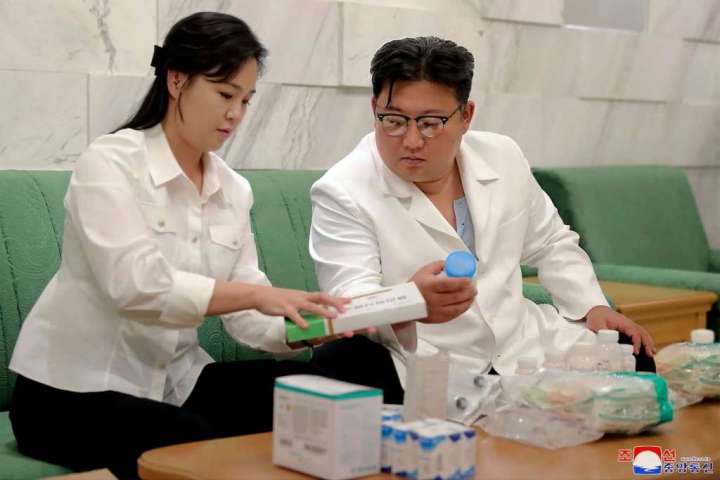TOKYO — As South Korean and U.S. officials repeated their warnings this week about a potential North Korean nuclear test, Pyongyang announced it is fighting a new intestinal epidemic that comes as the country grapples with drought, covid and ongoing food and cash shortages from its border lockdown.
As nuclear test looms, North Korea reports intestinal epidemic

New satellite images released this week by the Washington-based Center for Strategic and International Studies showed that refurbishment work at the Punggye-ri nuclear testing facility, which has been taking place over the past four months, appeared to be complete.
Pyongyang has held an unprecedented volley of missile tests as it rapidly expands and diversifies its weapons program. It tested an estimated 31 ballistic missiles this year — surpassing its annual record in just six months and despite U.N. Security Council resolutions prohibiting such tests.
All the while, North Korea remains in a strict covid border closure, even for its largest trading partner, neighboring China. Park, speaking at a news conference with U.S. Secretary of State Antony Blinken this week, warned North Korea against further isolating itself.
“I think that North Korea is at a crossroads now. It can go ahead with its nuclear test and isolate itself, or it can make a right decision and return to the diplomacy and the dialogue. I hope North Korea can make the latter choice instead of continuing on a dangerous course of action,” Park said.
The Korea Institute for Defense Analyses, which is affiliated with the South Korean Defense Ministry, estimated North Korea has spent as much as 2 percent of its gross domestic product this year — between $400 million and $650 million — on its missile tests.
Meanwhile, North Korea’s Central News Agency reported Thursday on an outbreak of the “acute enteric epidemic,” without naming the disease or giving a caseload. The term enteric refers to the gastrointestinal tract, and observers said the disease could be an intestinal illness like typhoid and cholera.
The announcement, though concerning, does not necessarily indicate a worsening public health crisis, according to Ahn Kyung-su, from the Seoul-based research center dprkhealth.org.
Waterborne diseases like cholera and typhoid were rampant in North Korea before the announcement of the country’s first coronavirus infection. Ahn said the outbreak of intestinal disease is not an uncommon situation given the country’s poor health and sanitary conditions.
“The recent state media reports about the outbreak could be a politically motivated one to demonstrate leader Kim Jong Un’s efforts for his people,” Ahn said.
North Korean state media reported that Kim is distributing medical aid as part of “his noble outlook on devoted service for the people’s well-being.”
Still, the outbreak probably complicates matters for the regime, which is already fighting a coronavirus outbreak amid growing economic woes and a chronic shortage of vaccines and medicines.
South Korea’s Unification Ministry said Thursday that it is willing to help North Korea battle the new outbreak. But Pyongyang has not responded to offers of coronavirus aid from South Korea and the United States and is unlikely to change course with countries the regime considers national security threats.
North Korea has asked for freight train service with China to be restored amid its shortage of food and medical supplies, Japan’s Asahi Shimbun reported this week, citing Chinese sources. It was the latest sign of North Korea’s growing dependence on Beijing, which has drawn Pyongyang closer amid rising U.S.-China competition.
U.S. and North Korean denuclearization negotiations fell apart in 2019. The United States has said it is ready to resume talks without preconditions, and North Korea has said it wants sanctions relief. The United States has not indicated it would be open to lifting any sanctions and has pushed for more in response to Pyongyang’s recent tests.
Last week, China’s envoy to the United Nations, Zhang Jun, said Beijing does not want to see another North Korean nuclear test and called on the United States to lift sanctions and end joint military exercises: “The United States is the number one superpower in the world. If the United States wants to engage in dialogue with anyone in the world, it’s not a difficult thing.”
Kim reported from Seoul.






